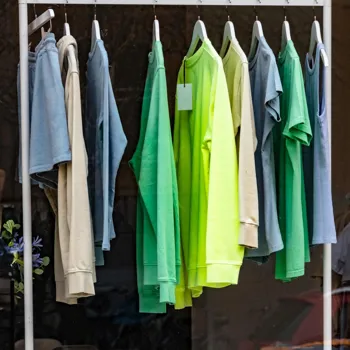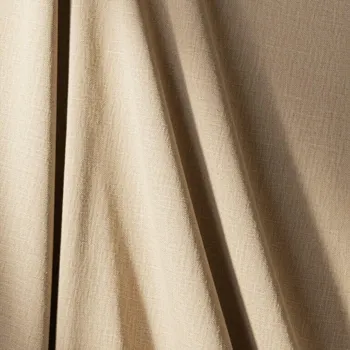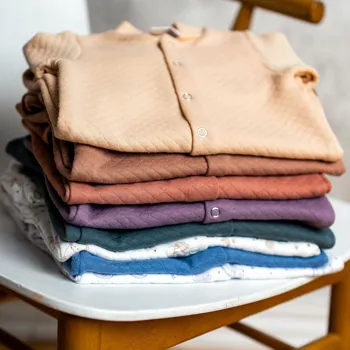Discover the impact of sustainable fashion in India with 6 brands leading the way! Dive in to learn more. #SustainableFashionInIndia
In a world increasingly aware of its environmental footprint, the fashion
industry is facing intense scrutiny. Fast fashion, with its cheap prices and rapid trend cycles, has contributed significantly to pollution, waste, and unethical labor practices. But fear not, fashion enthusiasts!
India is witnessing a surge of sustainable brands that are not only stylish but also committed to protecting our planet and empowering local communities. Let's take a look at six such brands that are making a real difference:
Anokhi: Tradition Meets Sustainability
Anokhi is a name synonymous with ethical and sustainable fashion in India. For over four decades, this brand has championed traditional textile techniques like hand-block printing and natural dyeing. Anokhi collaborates directly with artisans, ensuring fair wages and preserving heritage crafts.
They use organic cotton and eco-friendly dyes, minimizing their environmental impact. By choosing Anokhi, you're not just buying a garment; you're supporting a legacy of craftsmanship and sustainable practices. Their designs are timeless and elegant, reflecting India's rich textile heritage.
They focus on empowering their artisans to ensure sustained growth of their community. By choosing Anokhi, consumers are also contributing to the continuation of culture and traditions, which will be beneficial to many.
Doodlage: Upcycled Chic
Doodlage is a brand that truly walks the talk when it comes to upcycling. They take discarded fabrics and textiles, breathing new life into them through innovative designs. Doodlage sources pre-consumer waste from large garment manufacturers and post-consumer waste.

Their collections are quirky, unique, and full of character, proving that sustainable fashion can be incredibly stylish.
More than just upcycling, Doodlage tries and ensures that all materials used are obtained ethically, which is good for the overall growth of the society and sustainability aspect.
They promote slow fashion and discourage the consumption of fast fashion, by creating limited edition collections that are long lasting. Each product sold has a minimal impact on the environment, and also provide livelihoods to the communities involved in creating the product.
No Nasties: Organic Cotton Goodness
If you're looking for comfortable, everyday wear made with organic cotton, No Nasties is your go-to brand. They are committed to using 100% organic cotton, grown without harmful pesticides or fertilizers.

No Nasties also ensures fair wages and safe working conditions for their farmers and garment workers. Their designs are simple, classic, and versatile, perfect for building a sustainable wardrobe. No Nasties promotes a transparent supply chain.
Furthermore, they are actively involved in various social initiatives aimed at improving the lives of cotton farmers. By choosing No Nasties, you can be confident that your clothes are kind to both people and the planet.
They promote fair-trade and try hard to promote organic clothing so that the environment remains safe.
Ethicus: Handwoven Elegance
Ethicus specializes in ethically sourced and handwoven sarees and fabrics. They work directly with weavers in rural India, providing them with fair wages, training, and design inputs. Ethicus promotes the use of natural fibers like cotton, silk, and wool, and they minimize the use of synthetic dyes.
Their products are luxurious, elegant, and timeless. Ethicus focuses on preserving and promoting Indian handloom traditions. They are also actively involved in empowering women weavers and providing them with opportunities for economic independence.
By choosing Ethicus, you're not just buying a beautiful piece of clothing; you're supporting the livelihoods of skilled artisans and preserving a valuable cultural heritage. They ensure that the communities are benefitted from their actions.
Upasana: Conscious Creations
Upasana designs clothing that promotes ethical practices. Their focus is to promote social and environmental awareness by focusing on organic cotton. They are trying to make clothes that are eco-friendly and which have a minimal carbon footprint.
They are directly helping the farmers and weavers, and trying to ensure that they all lead good quality lives. The designs are simple but elegant. Upasana has also worked for humanitarian relief for Tsunami victims and also the Vidarbha farmers.
They are trying to ensure that their work is going to help the planet and all its inhabitants. With the help of their brand, they want to create the right level of awareness among the people.
Bareek: Sustainable Style
Bareek is a sustainable brand that focuses on contemporary designs with traditional Indian crafts. It carefully considers every step from the sourcing of raw materials to the final product. They advocate to use cotton sourced from organic farms and natural dyes extracted from plants.

They use zero waste design to make sure the clothing gets the maximum utility. Bareek promotes a transparent supply chain. Furthermore, they are actively involved in various social initiatives aimed at ensuring that the clothing does not impact the environment and is safe for the climate.
Why Sustainable Fashion Matters:
The fashion industry is a major contributor to environmental pollution and social injustice. By choosing sustainable brands, you can reduce your impact on the planet and support ethical labor practices.
Sustainable fashion is not just a trend; it's a movement towards a more responsible and equitable future. By embracing sustainable fashion choices, we can all play a part in creating a better world. It's about making conscious decisions that benefit both people and the planet.
It promotes social justice and a greener earth.
Tips for Building a Sustainable Wardrobe:
Buy less, choose well: Invest in high-quality, timeless pieces that will last for years.
Look for natural and organic fibers: Choose clothes made from materials like organic cotton, linen, hemp, and silk.
Support ethical brands: Research brands and choose those that are transparent about their supply chains and labor practices.
Shop second-hand: Give pre-loved clothes a new lease on life by shopping at thrift stores and consignment shops.
Care for your clothes properly: Wash your clothes less often and use eco-friendly detergents.
Repair and upcycle: Don't throw away damaged clothes; repair them or upcycle them into something new.
By following these tips, you can build a sustainable wardrobe that reflects your values and helps protect the planet. Remember, every small step counts! Choose wisely and embrace the power of conscious consumerism. Together, we can create a fashion industry that is both stylish and sustainable.
AI Generated Content. Glance/InMobi shall have no liability for the content











